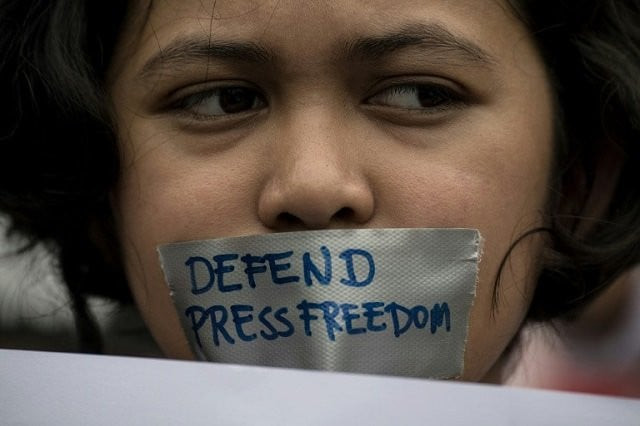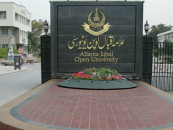CPNE rejects anti-media ‘black laws’
Conference participants condemn kidnapping, murder of journalists in Pakistan

A Media Freedom Round Table Conference organised by the Council of Pakistan Newspaper Editors (CPNE) rejected all “black laws” against the media, including the PECA Ordinance.
Participants of the conference said that this was not the first time that the government was trying to suppress freedom of the press, freedom of expression and access to information. They said that media organisations have united and thwarted all conspiracies.
They also added that the journalist community, human rights organisations, civil society and the legal community are ready to take extreme measures and make all kinds of sacrifices to thwart any tactic of restricting freedom of expression.
The participants of the conference, while noting the revelations of the report, also condemned the kidnapping and murder of journalists in Pakistan.
Read Govt urged to repeal amendment to 'draconian' PECA Ordinance
The conference was attended by a large number of civil society representatives, journalist organisations, lawyers, members of human rights organisations, as the CPNE launched its Media Freedom Report 2021.
CPNE Secretary General Amir Mahmood, in a joint resolution, rejected the PECA Ordinance, saying that they will fight till the end for the right to freedom and freedom of the media, and the right of the people to know.
Speaking at the conference, Karachi Press Club (KPC) President Fazil Jamili said that media organisations thwarted all conspiracies in the past, and if they remain united then no force could dare to block freedom of expression in the country.
Human Rights Commission of Pakistan (HRCP) Vice Chairman Qazi Khidr said that the commission believes in freedom of the press and freedom of expression. He added that the HRCP rejects unconstitutional and anti-human rights laws such as PECA.
Sindh High Court Bar Association (SHCBA) President Shahab Sarki termed the amendments to PECA as a violation of Articles 19 and 19A of the Constitution of Pakistan.
Arts Council of Pakistan President Ahmad Shah said that the government was taking irrational steps to divert attention from the real issues so that the truth could not reach the people. While the media and journalists are being affected by this legislation, those belonging to arts and literature are also being targeted, he added.
Broadcast journalist Najia Asher called for the creation of a digital wing with the help of technology experts to work on cyber laws. She also feared that the harassment faced by women on social media may further reduce their representation in the industry.
Pakistan Press Foundation (PPF) Chairman Owais Aslam Ali highlighted that disinformation is deliberate and systematic news broadcast by media outlets set up by political parties which is detrimental to the survival of democracy. He added that guidelines need to be set up regarding this, and the political parties themselves should play an active role in this process.
Anchorperson Faisal Aziz said that today every other person on social media calls himself a journalist, due to which the survival of actual journalists is in danger. He added that the way news spreads on social media, it is very difficult to verify them. He called for effective measures on these matters.



















COMMENTS
Comments are moderated and generally will be posted if they are on-topic and not abusive.
For more information, please see our Comments FAQ